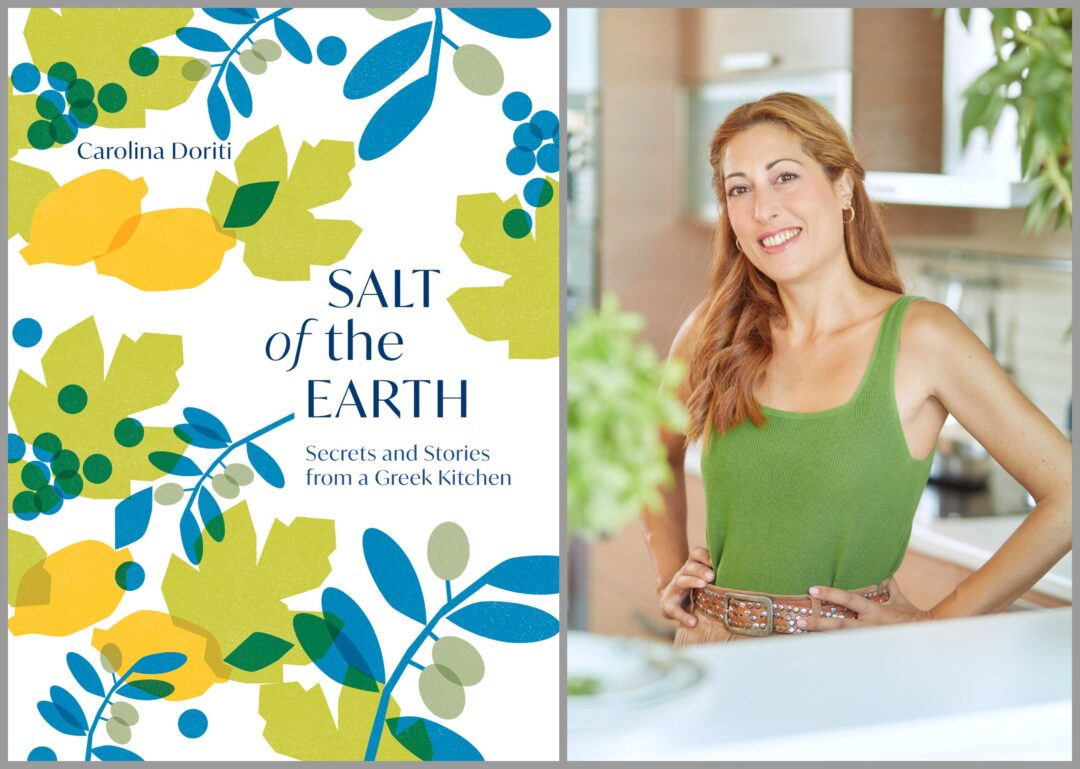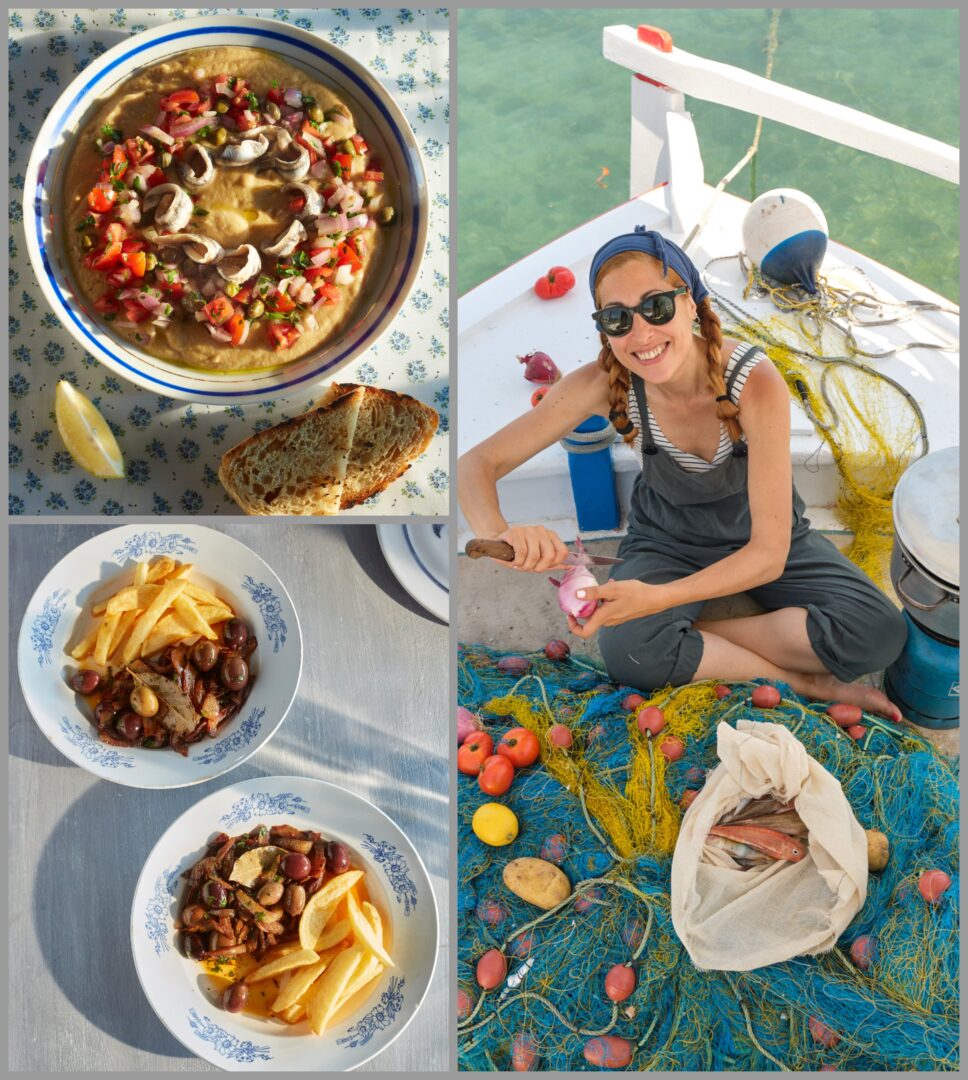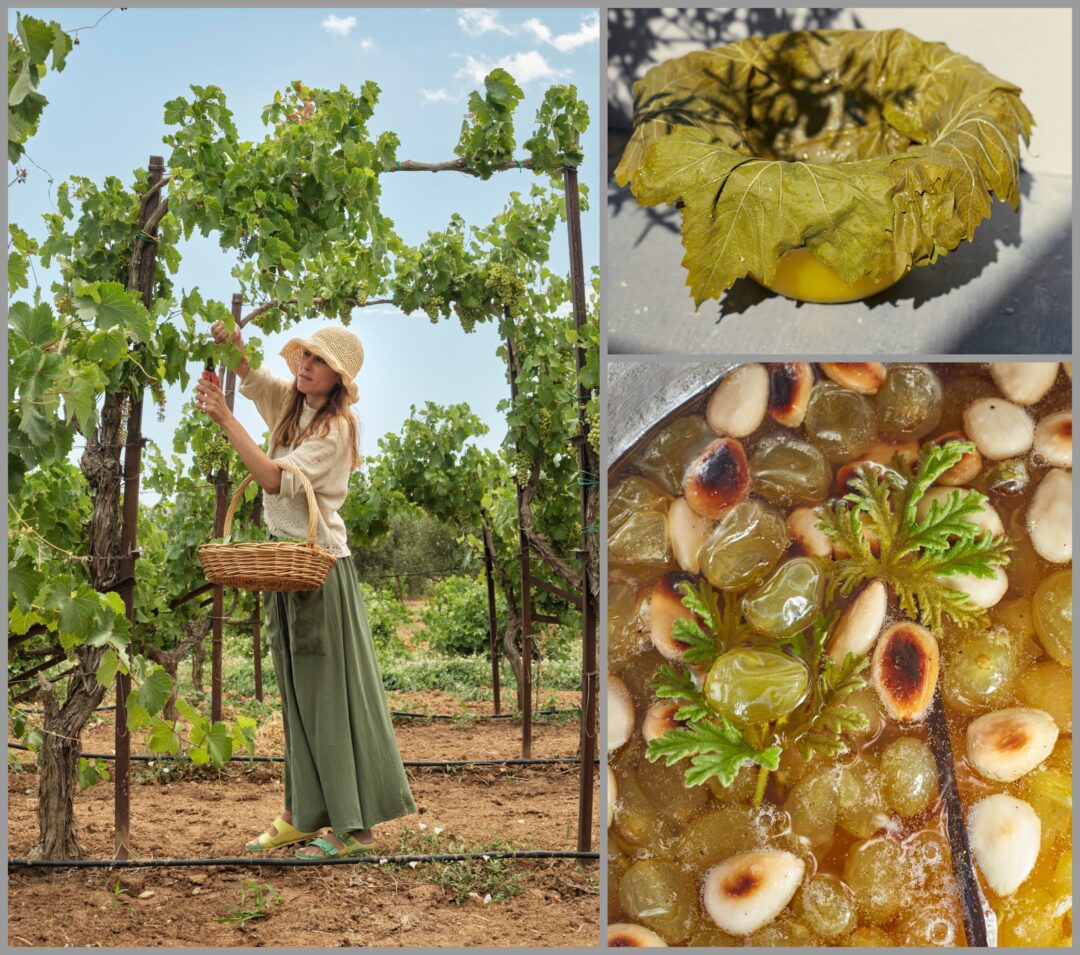Regarded as one of the healthiest diets in the world, Greek cuisine is defined by the country’s geography and the seasons, but also by the culture and history, the traditions, habits and religion. Influenced by various cultures over the centuries, Greek cuisine has been beautifully shaped into a unique mosaic of flavors and aromas!

Evoking a strong sense of place, Salt of the Earth. Secrets and Stories from a Greek Kitchen by Carolina Doriti, aims to introduce food lovers to the secrets of Greek cuisine, offering them the chance to explore indulging Mediterranean dishes against the irresistible backdrop of the country’s mainland and islands. Divided in five chapters – Olive, Grain, Hive, Seed, Vine – the book provides an ingredient-centric approach to cooking, selecting the core foods that have defined Greek cuisine for several centuries. Doriti presents recipes that are not only sustainable and accessible but also nutritious and delicious. She also delves into the history, traditions or the products associated with each recipe she presents, aiming to transport readers throughout the country and acquaint them with the culinary culture and the regional cooking.
Carolina Doriti spoke to Reading Greece* about her book, about Greek cuisine and what makes it so special for her, as well as about the Greek culinary tradition which holds a significant place all over the world.
Salt of the Earth offers an ingredient-centric approach to cooking, selecting the core foods that have defined Greek cuisine for several centuries. Tell us a few things about the book and its structure.
I wanted to present the history and evolution of the cuisine shinning a spotlight on the main ingredients that have shaped it for centuries. The Olive Tree and the Vine, for instance, two separate and very important chapters in the book, are plants that have fed and nourished Greeks since ancient times. I love showing how these ingredients have been used to the full and in a very sustainable and respectable way that has carried on throughout tradition. We look at the many wonderful products that derive from those amazing plants and the many ways these are used in both traditional and contemporary Greek cooking. At the same time, I wanted to offer to the reader basic knowledge about the ingredients and produce of Greece. Let’s take for instance the Olive which is the book’s first chapter and is divided into three subchapters; The Fruit, The Oil, The Leaves. I go deep into the history and the variety of olives grown in Greece, the different ways they can be used in cooking, what olive oil is all about and what extra virgin actually means, how to store it, how to use it and consume it to best preserve its nutritional value, and even how to use olive leaves which are highly medicinal.
The main ingredients and produce helped me write the stories I wanted to share, of which there were many (and I still have plenty!). I hope that through them the history of this wonderful ancient cuisine beautifully unfolds!

How are the foods presented in the book combined with the diverse geographical landscape that makes up Greece?
The book travels around Greece, it explores the different regions and the local cuisines. By describing and explaining local habits and produce, primarily through the food, recipes and other culinary-related stories, the book provides valuable insight into our local culture and tradition. Stories and recipes that ought to be recorded! Each recipe goes with a story, whether that is a tale tied to mythology or the region or the actual history of each dish, aiming at traveling the reader in different parts of the country, understanding the diversity of the landscape and how incredibly important that has been in shaping the local dishes.
I love showing how these ingredients have been used to the full and in a very sustainable and respectable way that has carried on through our tradition. We look at the many wonderful products that derive from those amazing
How does Greek cuisine converse with the country’s century-long history and local traditions?
This is kind of what the whole book is about; the timelessness of this cuisine! During the last decade or so traditional food had become “a thing”, which is great! Contemporary chefs have embraced traditional recipes, old ways of cooking, ways of preserving, and humble local products such as pulses, foraged goods and several old-school (unprocessed) ingredients such as lupins for instance or carob making a big come back!
They use them in old and new ways, but I think that the traditional cuisine at the momentis really having a resurgence and is definitely a source of inspiration for many.! They use them in old and new ways, but I think that the traditional cuisine at the moment is really praised and is definitely a source of inspiration for many.

Boasting healthy choices packed with flavor and diverse, high-quality ingredients, Greek culinary tradition holds a significant place across the globe. What makes it so world-renowned?
I think it is all about the simplicity and freshness that characterise most Greek dishes. There is something very comforting about this cuisine, that’s why I call it “a wise, maternal kitchen”. It’s all about nourishment and balance and about celebrating the flavours and aromas of fresh produce, such as vegetable or olive oil, that Greece is blessed to have in abundance. So, when the quality of your ingredients is so good, then as a cook you ought to let these ingredients shine and not cover them with too many spices. You treat them with respect and humbly dress them with simplicity, a very good olive oil for instance, some natural sea salt or a fresh herb and lots of love! Cooking after all is a massive expression of love and affection to those you feed and nourish!
*Interview by Athina Rossoglou
** Carolina Doriti was born in Athens. She writes about food and shares her recipes in Greek and international publications, works as private chef and restaurant consultant and is the culinary producer of the USA TV series My Greek Table broadcasted on PBS. Carolina also runs gastronomy-centred tours and trips around Greece, as well as cooking workshops both in Greece and the UK.
*** Photo credits: Manos Chatzikonstantis
TAGS: FOOD & DRINK | LITERATURE & BOOKS | MED DIET | READING GREECE













